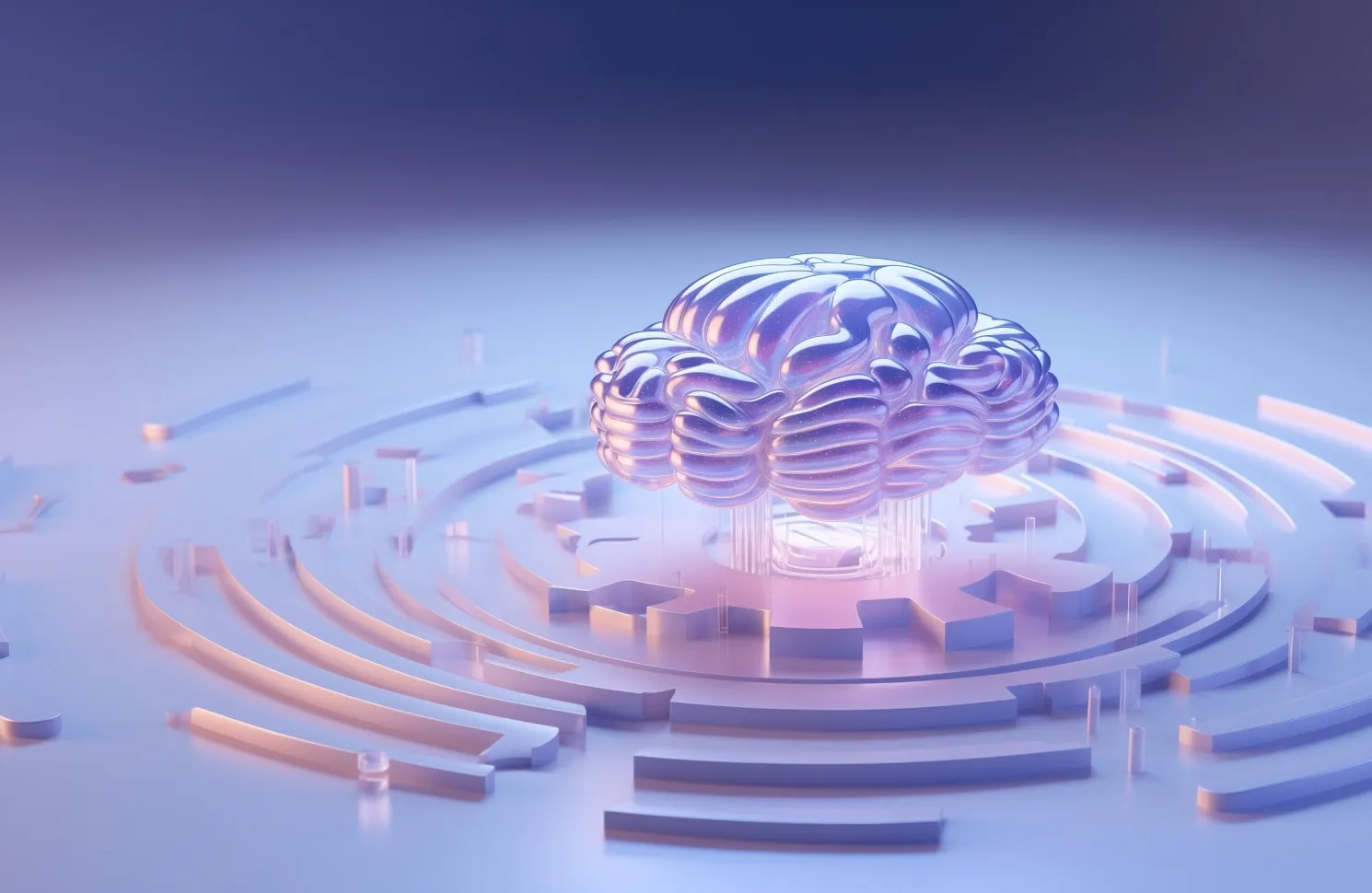

How AI revolutionizes healthcare, from diagnosis to delivery
JUN. 14, 2024
2 Min Read
Here are several ways the healthcare industry is harnessing the power of AI.
Modern medicine is already a marvel of human ingenuity, but AI is pushing the boundaries even further. It’s transforming how doctors diagnose diseases, conduct research, and most importantly, deliver patient care.
While initial AI applications focused on diagnostics and research, these are just the first steps in a much larger revolution. Next-gen advancements like virtual health assistants and predictive analytics hold immense promise to supercharge provider productivity and improve patient outcomes.
Here are several ways the healthcare industry is harnessing the power of AI.
Examples of AI in healthcare
AI in diagnostics: A keen eye for hidden patterns
AI tools can analyze medical images — X-rays, MRIs, CT scans — with precision and speed. This translates to earlier and more accurate diagnoses for a wide range of conditions, from hard-to-detect cancers to neurological disorders.
The game-changer here is AI’s ability to detect subtle abnormalities that can escape even the most experienced doctors. A recent study found that radiologists could significantly boost their cancer detection rates with the help of AI tools.
AI in medical research: Powering faster breakthroughs
For decades, discovering new drugs has been a slow, painstaking process. AI is turbocharging that process, acting as a powerful engine for faster breakthroughs.
Imagine sifting through mountains of data — chemical compounds, patient information, clinical trial results, etc. — in the blink of an eye. That’s exactly what AI can do.
Studying these vast datasets allows AI to pinpoint promising drug candidates with incredible speed and accuracy, significantly cutting the time it takes to bring life-saving medications to market.
AI-powered virtual assistants
Amid an ongoing shortage of physicians and nurses, AI-powered assistants are becoming ubiquitous, providing patients with 24/7 support.
Here’s how they’re elevating care:
Proactive guidance
AI assistants can analyze medical history and risk factors to recommend preventive screenings. This could involve reminding a patient about overdue mammograms or suggesting lifestyle changes based on their health data.
Medication management made easy
Much to their dismay, doctors can only prescribe medications — they can’t make their patients take them. AI assistants can be a huge asset to doctors by acting as medication coaches, reminding patients about dosages, potential side effects, and offering medication refill support.
Mental health support
No robot can replace the human touch that seasoned mental health professionals provide. However, AI assistants can offer mental health resources and self-management techniques and even connect patients with relevant specialists.
Predictive analytics for optimized operations
Hospital operations tend to be unpredictable, especially in the ER. Ensuring adequate staffing and equipment during patient surges has been challenging for years.
AI-powered analytics can’t predict the future, but they can get pretty darn close. Here’s how:
Optimal resource allocation
No more scrambling during patient influxes. These models can leverage historical and real-time data to help hospital operators proactively allocate staff and equipment to the areas that will need them most.
Better inventory management
Predictive analytics models anticipate medication and equipment needs, streamlining the healthcare supply chain.
Risk stratification
AI can leverage patient data to predict the likelihood of post-surgical complications or in-hospital risks. This foresight empowers healthcare providers to prioritize care for high-risk patients and implement preventative measures accordingly.
AI-powered chatbots
AI-driven chatbots can streamline workflows and free up valuable time for healthcare professionals. These chatbots seamlessly integrate into existing systems, acting as helpful companions throughout the patient journey.
Simplified insurance verification
Validating insurance information consumes significant time and resources in many hospital settings. AI-powered chatbots automate this process, expediting intakes and reducing administrative burden for patients and staff.
Personalized guidance and education
Doctors and nurses spend more time than necessary answering patients’ basic health questions. Armed with a patient’s medical history, AI-powered chatbots can answer many of their questions and provide educational resources tailored to a patient’s specific condition.
Remote patient monitoring with AI
With AI, healthcare extends beyond the hospital walls. Remote patient monitoring via wearables and sensors can enable earlier detection of health complications.
Chronic disease champions
Patients with chronic conditions can be monitored remotely using wearable devices. These devices track vital signs, blood sugar levels, and activity patterns, allowing healthcare providers to identify potential issues early and intervene as soon as necessary.
Post-surgical peace of mind
Following surgery, AI-powered remote monitoring tracks a patient's recovery progress at home. Doctors can keep an eye out for complications before the patient’s follow-up visit.
Mental health support on the go
Wearable sensors can track physiological markers of stress or anxiety. This data can be integrated with AI-powered chatbots to provide patients with real-time support and resources for managing their mental health.
AI-powered drug delivery systems
Personalized medicine is taking a giant leap forward with AI-powered drug delivery systems, leading to better outcomes across the board.
Precision dosing
Looking forward, we’ll see one-size-fits-all dosing as outdated. Acknowledging the diverse biological characteristics of individuals, medication dosages should be customized based on individual genetic profiles and real-time health data. Advancements in AI are facilitating the realization of this personalized approach.
Real-time adjustments
AI systems continuously monitor a patient's response to medication and adjust dosages in real time, ensuring patients receive the optimal therapeutic effect throughout their course of treatment.
Imagine this: a cancer patient’s AI-powered drug delivery system continually monitors their bloodwork and adjusts the dosage to target cancer cells more effectively while minimizing harm to healthy tissues.
These examples of AI in healthcare are just the beginning of the transformation that’s underway. As AI continues to evolve, its potential to transform patient care, improve outcomes, and create a more efficient healthcare system is limitless.
AI for privacy and compliance
In the rapidly evolving landscape of healthcare technology, the integration of AI-based products has raised concerns surrounding data privacy and security. Given the access to sensitive patient medical data inherent in AI applications, robust measures must be in place to safeguard this information and ensure compliance with privacy regulations.
However, it’s important to note that AI also offers significant potential in supporting the pursuit of privacy, data security, and compliance in healthcare.
Risk assessment
AI has the potential to significantly enhance healthcare data security by proactively detecting and preventing breaches, thereby safeguarding sensitive patient information. By implementing AI-powered platforms, healthcare organizations can effectively mitigate the risks posed by security breaches, thus ensuring the robust protection of electronic protected health information (ePHI).
Automated documentation and reporting
Leveraging AI-powered natural language processing (NLP) algorithms, healthcare organizations can streamline regulatory reporting processes, such as ensuring compliance with HIPAA or GDPR, by automatically analyzing and extracting relevant information from vast amounts of data.
This automated approach reduces the time and resources required for manual documentation while enhancing accuracy and consistency in reporting, minimizing the risk of errors and oversights.
Audit trail analysis
AI-driven analytics platforms can analyze audit trails and electronic records, enabling the identification of patterns that may indicate non-compliance or suspicious activities.
By automatically flagging deviations from established protocols or regulatory requirements, these AI-powered solutions streamline the auditing process and facilitate proactive compliance management within healthcare organizations. This proactive approach empowers healthcare providers to promptly address potential issues and ensure adherence to compliance standards.
Patient data privacy protection
AI capabilities can significantly fortify patient data privacy protection measures by automatically anonymizing or pseudonymizing sensitive information in compliance with privacy regulations such as GDPR or HIPAA.
AI-powered data masking techniques ensure that only authorized personnel can access identifiable patient data, thereby minimizing the risks associated with data breaches and potential penalties for non-compliance.
Related: See how this bone marrow donor app streamlined the registration process.
Lumenalta: Your AI partner in healthcare
The future of healthcare is brimming with AI-powered possibilities, but navigating its complexities can be daunting. That’s where we step in. We’re not consultants — we’re your AI partner in revolutionizing patient care. Lumenalta, let tech light the way.
Read next: Leveraging AI in design operations






